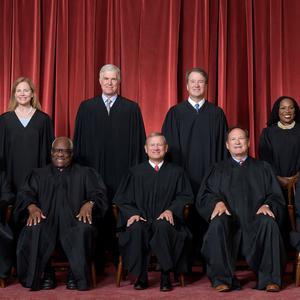On March 9, the U.S. Supreme Court declined review in Thompson v. McNeil, but three Justices issued strongly worded statements about the importance of the legal issue raised. William Thompson has been on death row in Florida for 32 years. He claimed the excessive time he has spent on death row amounted to cruel and unusual punishment under the Eighth Amendment. Justice John Paul Stevens, in an opinion respecting the denial of certiorari, called the treatment of the defendant during his 32 years on death row “dehumanizing,” noting that Thompson “has endured especially severe conditions of confinement, spending up to 23 hours per day in isolation in a 6- by 9-foot cell” and has experienced two stays of execution “only shortly before he was scheduled to be put to death.” Justice Stevens added that neither retribution nor deterrence were served in such a case and “a punishment of death after significant delay is ‘so totally without penological justification that it results in the gratuitous infliction of suffering.’” (quoting Gregg v. Georgia (1976)).
Justice Stephen Breyer summed up why he believed the Court should take this case: “The question here, however, is whether the Constitution permits [the] execution after a delay of 32 years—a delay for which the State was in significant part responsible.” Justice Clarence Thomas, however, disagreed with the views of his colleagues, pointing to the cruelty of the murder for which the defendant was sentenced to death and asserting that it was the defendant himself who caused the delays in question.
Other excerpts from Justice Stevens’ opinion:
In Baze v. Rees, I suggested that the “time for a dispassionate, impartial comparison of the enormous costs that death penalty litigation imposes on society with the benefits that it produces has surely arrived.”
[O]ur experience during the past three decades has demonstrated that delays in state-sponsored killings are inescapable and that executing defendants after such delays is unacceptably cruel. This inevitable cruelty, coupled with the diminished justification for carrying out an execution after the lapse of so much time, reinforces my opinion that contemporary decisions “to retain the death penalty as a part of our law are the product of habit and inattention rather than an acceptable deliberative process.”
Justice Thomas concluded:
It is the crime—and not the punishment imposed by the jury or the delay in petitioner’s execution—that was “un-acceptably cruel.”
(A. Liptak, “Justices Rule on Legal Effects of Slow-Moving Cases,” New York Times, March 9, 2009; see also Thompson v. McNeil, No. 08-7369, cert. denied; Stevens, J., respecting denial of cert.; Thomas, J., concurring; Breyer, J., dissenting (March 9, 2009)) (intenal citations omitted). See Supreme Court and Time on Death Row. Justice Stevens pointed to DPIC’s list of exonerated defendants in support of his point that a careful review of capital cases is necessary. See Innocence.
United States Supreme Court
Apr 24, 2024

Supreme Court Roundup: Justices Hear Oral Arguments on Ineffective Assistance of Counsel, Cruel and Unusual Punishment; Defend Positions on Stays
United States Supreme Court
Apr 17, 2024
Justices Sotomayor and Jackson Issue Dissents Over Supreme Court’s Refusal to Review Two Capital Misconduct Cases
United States Supreme Court
Dec 15, 2023


